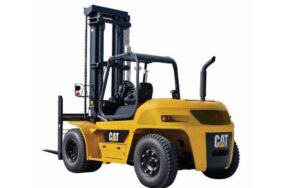
Forklifts are the backbone of operations in warehouses, construction sites, logistics centers, and industrial environments. These powerful machines handle heavy loads, streamline operations, and significantly boost productivity. However, like any machinery, forklifts require consistent maintenance to function efficiently and safely. One of the most critical, yet often overlooked aspects of forklift maintenance is regular fluid checks, especially for the transmission system.
Transmission fluid plays a vital role in ensuring smooth operation, optimal performance, and longevity of a forklift’s transmission. Neglecting this essential maintenance practice can lead to severe mechanical issues, increased operational costs, and safety hazards.

What Is Forklift Transmission Fluid and Why It Matters
Transmission fluid in forklifts is responsible for lubricating moving parts, cooling transmission components, transmitting power, and cleaning the internal systems. In automatic transmissions, it also serves as a hydraulic fluid that helps gear shifts occur seamlessly.
When the fluid level is low or the fluid becomes dirty, the transmission may not function as intended. Gears may slip, overheat, or become damaged, ultimately resulting in costly repairs or complete transmission failure.
Key Benefits of Regular Fluid Checks
1. Preventing Overheating
Transmission fluid helps regulate the temperature within the transmission system. If the fluid level drops too low or the fluid degrades due to dirt and debris, it loses its cooling ability. Overheating can warp components and lead to early transmission failure. Regular checks ensure the fluid is clean and adequate, reducing the risk of heat damage.
2. Ensuring Smooth Gear Shifts
A forklift relies on the transmission to shift gears smoothly while carrying or lifting heavy loads. Dirty or low transmission fluid can cause jerky movements, slipping gears, or delayed responses—compromising both performance and safety. Checking and replacing fluid ensures that shifting remains smooth and reliable.
3. Extending Transmission Lifespan
Transmission repairs are among the most expensive forklift repairs. Replacing a damaged transmission system can be time-consuming and costly. Regular fluid checks and timely replacements reduce internal wear and tear, significantly extending the lifespan of the transmission.
4. Improving Fuel Efficiency
When a forklift’s transmission is in good condition, it operates more efficiently and doesn’t have to work as hard to perform basic tasks. Clean, high-quality fluid helps reduce friction and resistance, leading to better fuel efficiency and lower operational costs.
5. Early Detection of Problems
Routine fluid checks often uncover early signs of bigger issues. For example, metal particles in the fluid could indicate internal wear, while a burnt smell could signal overheating. Identifying these warning signs early allows for timely intervention before the issue escalates.
How Often Should You Check Forklift Transmission Fluid?
The frequency of fluid checks depends on the forklift’s usage, the environment, and manufacturer recommendations. However, as a general guideline:
- Daily Checks: Operators should visually inspect fluid levels and check for leaks at the beginning of every shift.
- Monthly or Quarterly Maintenance: More thorough inspections involving fluid condition analysis, potential top-ups, or full changes should be performed by trained technicians at regular intervals.
Harsh working environments (e.g., dusty, hot, or wet conditions) may require more frequent checks due to increased wear on components and quicker degradation of fluid quality.
Signs That Indicate a Fluid Check Is Overdue
Operators and maintenance personnel should be on the lookout for the following signs:
- Difficulty or delay in shifting gears
- Noisy operation or grinding sounds
- Burning smell from the forklift
- Transmission slipping under load
- Overheating alarms or warnings
These signs often point to contaminated or insufficient transmission fluid and should not be ignored.
Best Practices for Fluid Maintenance
To maintain forklift transmission health, follow these best practices:
- Use the Right Fluid: Always use fluid types recommended by the forklift manufacturer. Using the wrong fluid can damage seals and internal components.
- Maintain a Maintenance Log: Track fluid changes, top-ups, and inspections to ensure nothing is overlooked.
- Train Operators: Educate forklift operators to recognize early signs of transmission issues and perform basic visual checks.
- Conduct Scheduled Services: Stick to a proactive maintenance schedule instead of reacting to breakdowns.
- Check for Leaks: Regularly inspect the transmission area for leaks, which can cause a sudden drop in fluid levels.

Conclusion: Partner with WHITE FIELD GENERAL TRANSPORT for Expert Forklift Maintenance
The health of a forklift’s transmission is directly tied to the condition and level of its transmission fluid. Ignoring regular fluid checks not only jeopardizes the machinery but also affects overall productivity, workplace safety, and operational costs. In high-demand environments where forklifts work continuously under pressure, transmission maintenance is not optional—it’s essential.
This is where White Field General Transport stands out. With a proven track record in material handling solutions and industrial vehicle support, White Field General Transport offers professional forklift maintenance services, including meticulous fluid inspections and transmission care. Their skilled technicians ensure that every machine is kept in peak working condition, preventing costly downtimes and breakdowns. For businesses that value performance, safety, and efficiency, White Field General Transport is the partner you can trust.





No comment yet, add your voice below!